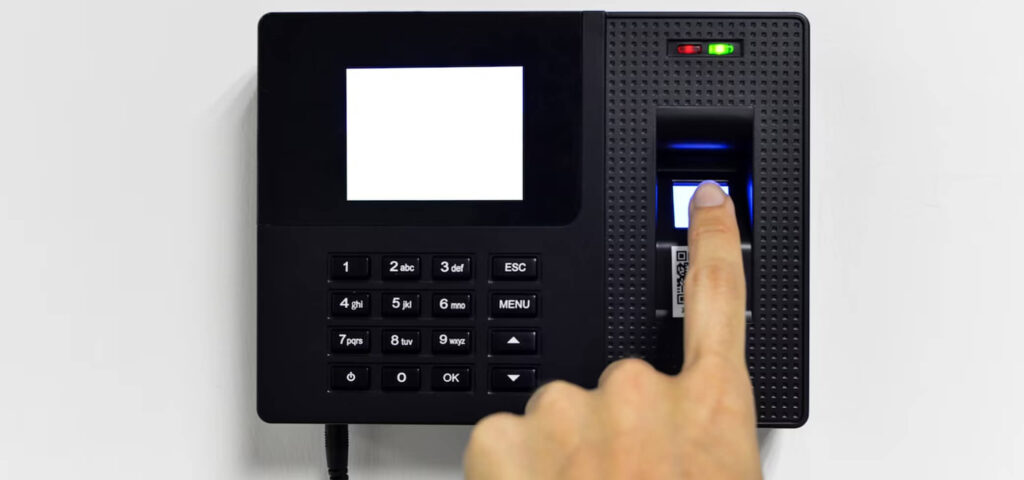
Considering the pace at which the digital world is growing, you should consider securing your business operations more than ever. There are unauthorized accesses, data breaches, and even physical theft which tend to affect your business. To secure assets and personnel, one of the best approaches is to put into place Access Control Systems. Access Control Systems also help with Improved security, operation efficiency, and agile access management of the business.

What is an Access Control System?
An Access Control System (ACS) is a security solution designed to regulate and monitor who can enter or exit a facility, specific rooms, or restricted areas. ACS systems make use of multiple authentication methods such as RFID and Biometric devices, PINs, and even mobile phone verification. Access Control Systems are adopted by different businesses in various industries to keep sensitive data, equipment, and employees safe.
Key Benefits of Access Control Systems
Enhanced Security & Protection
The foremost perk of having Access Control Systems installed is the prevention of unauthorized staff access. You cannot deny that the traditional systems of using locks and keys is very prone to compromising your business security. More modern systems are able to give doors real time tracking and even logging to better ensure that only staff of the company can access sensitive places.
Enhanced Employee & Visitor Management
Here and there, businesses have a blend of employees, visitors, and even contractors on-site. With Access Control Solutions, a business can allow or deny entry depending on their roles as well as responsibilities, thereby eliminating the chance of unapproved people getting into secured areas. In addition, visitor identity and access are managed and restricted through the use of temporary credentials which enhances security.
Integration with Other Security Systems
Every contemporary access control system has the ability to interface with CCTV surveillance, alarm system, and fire safety systems or any other advanced security infrastructure. This allows the business to apply multi-layered security, minimizing exposure while maximizing their response to emergencies.
Flexible and Economical Solutions
Access control system is affordable and economical to a business and comes with numerous benefits to the employer and employees unlike the ordinary methods of security that needs constant replacement of locks and additional manpower for guarding. Small or large enterprises are exposed to the possibility of tailoring these systems based to their precise security requirements. With remote hands, real-time modulation of users greatly increases the versatility of cloud control access.
Following Up Industry Standards, Policies, and Regulatory Compliance
Access Control Systems in healthcare, finance, and IT industries allow practitioners to restrict access to sensitive information, ensuring the compliance with industry standards such as GDPR, HIPAA, and INFO 27001 among others. Businesses have employed these solutions to ensure that sensitive information is protected and work-related security risks are mitigated.
Improvement of Efficiency in the Workplace
Manual check-in security systems and the use of physical keys fosters inefficient business processes. Automated Access Control Solutions fosters positive business improvements as employees can easily access their assigned workspaces. These solutions enable businesses to track employee work hours, monitor security area entries, as well as comprehensively analyze security information for informed business decisions.
Different Systems of Access Control
The level of security a business requires largely determines the type of Access Control Solutions that will be applicable for adoption. The following classifications are specifically designed for business clients:
Discretionary Access Control (DAC): rights to specify access permissions is left to individual users.
Mandatory Access Control (MAC): is implemented in the most sensitive and secure environments where access permission are set by security policies.
Role-Based Access Control (RBAC): users are granted access depending on their job description, ensuring that employees do not possess permissions that are superfluous to their duties.
Biometric Access Control: identity verification is done using fingerprint scanners, facial recognition, and retina scans.
Cloud-Based Access Control: management of access control is done off premises online through a secured platform.

Key Takeaways
Building a secure, accessible environment for physical and digital resources is a must for contemporary organizations. Comprehensive business security solutions, as well as security compliance, effectiveness, and growth, can all be covered by these systems. These systems can assist with everything from small business offices to global enterprises. So, take the plunge and invest in Access Control Solutions today and protect your assets.
